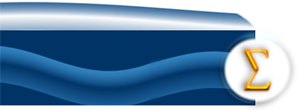2001 Conferences
8th CACR Information Security Workshop
2nd Annual Privacy and Security Workshop
Speaker
Jagdish Pariah
Human Rights Watch
Title
Freedom of Expression in the Digital World: The Human Rights Perspective
Abstract
The September 11 attacks in the United States were an assault on the principles of respect for civilian life cherished by all peoples and a crime against humanity. For the foreseeable future, much of the world will understandably be focused on efforts to bring those responsible for the attacks of September 11 to justice.
While the attention of the world is focused elsewhere, some governments may cynically try to take advantage of this struggle to justify or intensify their own crackdowns on political opponents or religious groups. These measures may lead to adding new restrictions on free expression and could reduce safeguards against abuses of basic human rights.
Already, some governments are increasing their repression of opponents. Technology in particular has been a popular scapegoat in recent years, because of the threat it represents to government control of information. In the aftermath of the 11 September attacks, some are now arguing that electronic privacy is a "needless luxury." We are told that our expectations - to use the Net without surveillance, to use encryption without government access to encrypted messages and to use anonymous web browsing - could seriously endanger national security. In the midst of this backlash against free expression and the potential of the Net, human rights defenders around the world continue to experience curbs on civil liberties. Guatemala is one such country where not only do human rights defenders face continual death threats, assaults and other forms of intimidation, but where electronic surveillance has become epidemic in the past year.
A final disquieting recent trend is of an attack on people based on their religious or national identity. The Net could provide a space for exchange of ideas without fear and building bridges across cultures. In the face of such discrimination access to un-censored media and cross-border solidarity, a space for public discourse acquires even greater importance today. But to meet all of these old and new challenges one must avoid all temptation to curb free expression on the Internet.
Speaker Bio
Jagdish Pariah works for New York based human rights organization - Human Rights Watch (http://www.hrw.org). He has tracked the evolution of Internet regulations worldwide and helps Human Rights Watch design strategies using on-line communications including use of secure communications.

